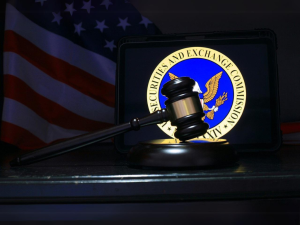The Fifth U.S. Circuit Court of Appeals has temporarily halted new rules introduced by the Securities and Exchange Commission (SEC) requiring public companies to disclose climate-related risks. This decision came shortly after oil field services companies Liberty Energy and Nomad Proppant Services filed a lawsuit challenging the regulations.
The stay marks the first setback for the SEC in what is expected to be a prolonged legal battle over the climate disclosure rules. While litigation unfolds, some companies may postpone their compliance plans, although others may opt to proceed in preparation for the SEC's 2026 deadline.
Margaret Farrell, chair of law firm Hinckley Allen’s securities law group, noted that despite the temporary halt, companies still have an obligation to consider the impact of climate change on their business, a principle underscored by the SEC in previous years.
Critics of the SEC's rules argue that they impose undue micromanagement on companies' determinations of materiality, potentially causing confusion and undermining investor confidence. However, SEC Chair Gary Gensler has defended the regulations, emphasizing their aim to provide investors with consistent and reliable information regarding climate risks.
The SEC's climate disclosure rules seek to standardize company disclosures concerning greenhouse gas emissions, weather-related risks, and strategies for transitioning to a low-carbon economy. The regulations emerged following a two-year process involving lobbying efforts from both industry giants and climate advocacy groups.
In a compromise, the amended rules do not mandate reporting on certain indirect emissions, such as those from supply chains and customers' use of products like coal or crude oil. Companies had voiced concerns over the complexity and burdensome nature of such requirements.
The legal challenge against the SEC's climate rules asserts that the agency overstepped its authority in creating them and that they violate the First Amendment. Moreover, companies argue that compliance would impose significant costs, estimated by the SEC to exceed $4 billion collectively.
Despite uncertainty surrounding the fate of the SEC's rules, particularly amid the U.S. presidential election, some companies may adopt a wait-and-see approach to litigation. Nevertheless, Farrell advises companies in climate-affected industries to continue preparing for the new requirements, emphasizing the importance of proactive readiness.
Chris Wright, CEO of Liberty Energy, criticized the regulations as politically motivated and warned of increased costs for the domestic oil and gas industry, potentially leading to higher energy prices for U.S. consumers.
As legal battles unfold and regulatory landscapes evolve, companies will need to navigate the complexities of climate disclosure regulations while balancing compliance with business objectives and stakeholder expectations.






















